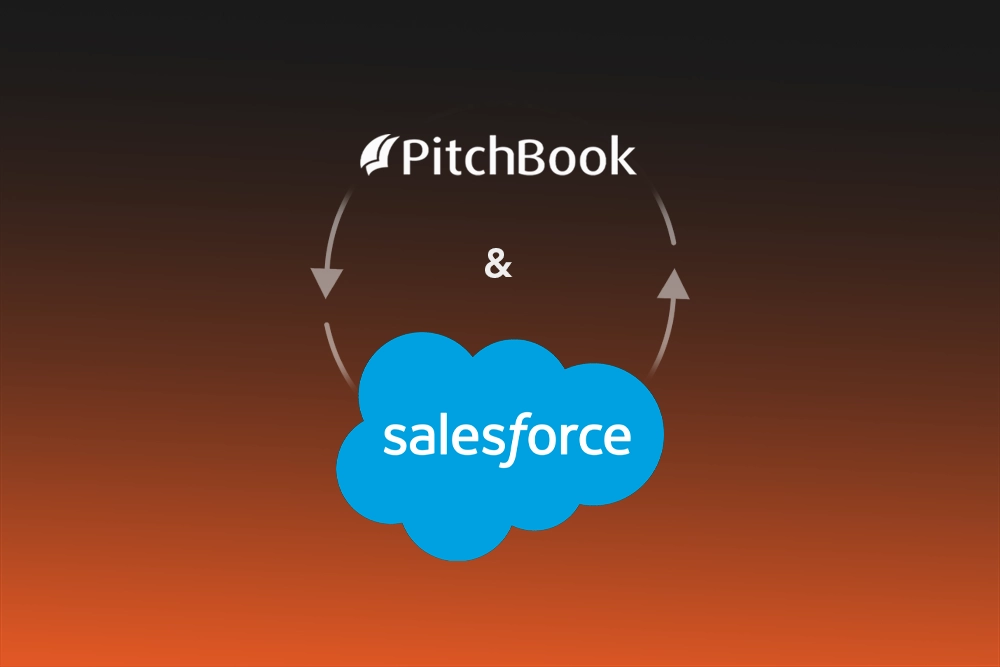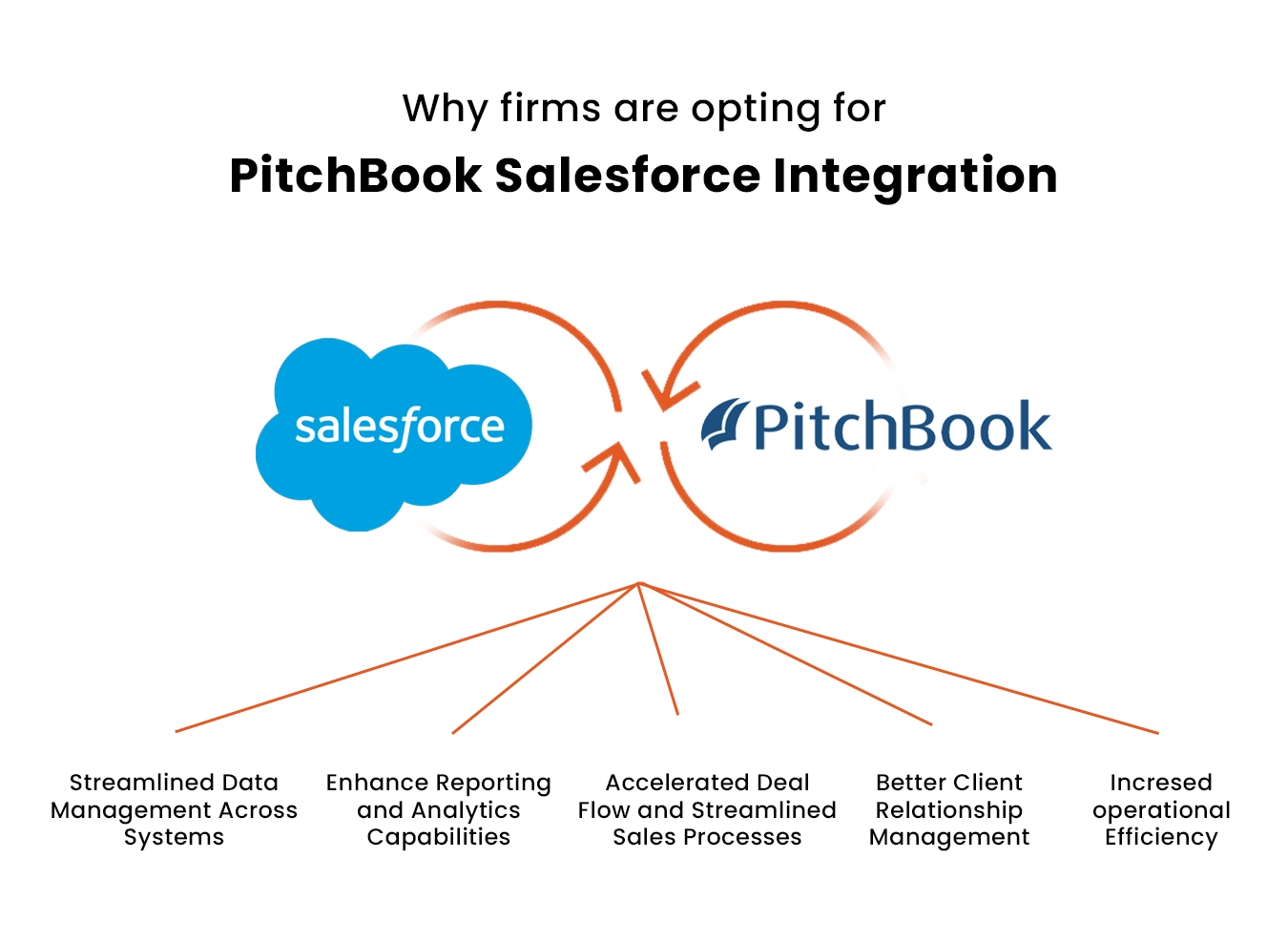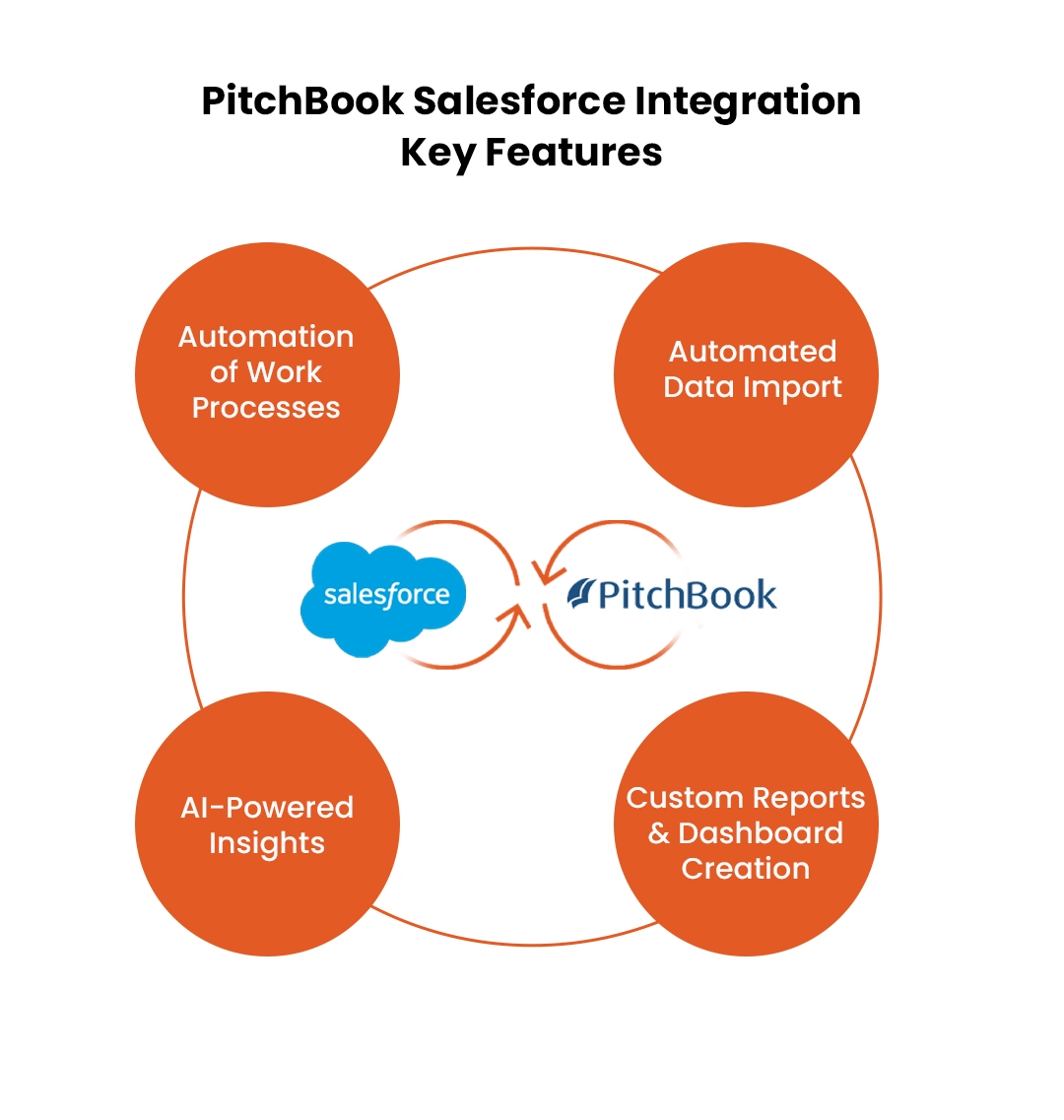
Staying on top of deals can be tiring. Moreover, managing investor info and financial data across systems is hard. As a result, many financial firms deal with operational issues. Additionally, they face gaps in opportunities and data silos without integrated systems.
Furthermore, manually managing data slows down decisions. Consequently, this can lead to expensive mistakes. However, the PitchBook Salesforce integration can fix this. Specifically, it helps financial firms automate their workflows. Likewise, private equity and venture capitalists also see benefits.
Notably, this integration combines PitchBook’s market insights with Salesforce CRM. As a result, it boosts client interactions and helps companies stay ahead. In this blog, you’ll explore the benefits and main points of integrating PitchBook with Salesforce. You’ll also uncover the best practices for a smooth connection.
Let's explore it!

The PitchBook and Salesforce Integration seamlessly connect PitchBook’s financial data to Salesforce. More specifically, it links this data with the Salesforce CRM. Users can easily access financials, valuations, and funding history. Additionally, they can also see investor information right in Salesforce. This cuts out complicated data entry. As a result, the user no longer has to switch between different platforms, streamlining their workflow.
Moreover, this integration helps firms manage deals, track investments, and network better. More specifically, it stores key market intelligence directly in the CRM. So, teams can quickly access information; consequently, they can work smarter and faster.
Many businesses rely on different tools to track clients. However, they often handle financial data without collaboration. This fragmented approach can be inconvenient and time-consuming. The PitchBook-Salesforce integration addresses this issue. It enhances workflow and improves client relations. Additionally, it streamlines reporting and business intelligence.
Moreover, it boosts investor relations and optimizes deal management systems. Here are some key benefits of PitchBook-Salesforce integration. These points show why it is a smart investment for businesses.

Entering financial information manually is often tedious and time-consuming. However, by combining the PitchBook-Salesforce integration, businesses can merge several financial data sources into one central system. As a result, manual data entry is a thing of the past.
Moreover, client interactions, investment data, and reports are automatically synced. This provides users with real-time insights without having to update information manually.
Additionally, all operator and client relevant data, including their deals and market trends, can be accessed easily within Salesforce. Consequently, this results in a more efficient workflow, requiring no toggling across different platforms.
Monitoring and successfully closing deals is essential for a finance expert. However, the integration of Salesforce and PitchBook ensures that investments will not go to waste. More importantly, the PitchBook-Salesforce integration allows them to administer investments promptly and boosts their productivity.
Moreover, it automatically notifies users of critical changes to names and milestones. As a result, businesses can effectively track objectives without the risk of essential information updates being overlooked.
Additionally, it helps in correct mapping during rigorous background checks. This, in turn, facilitates and enhances the decision-making process.
Revision of the Analytics Report Creating new data benchmarks is very easy. Custom dashboards and PitchBook handle this work on behalf of firm members. This streamlines the entire process.
In addition, the combination of CRM and market information provides accurate and unbiased insights. As a result, businesses can improve their estimates. They can also improve their perspective to anticipate future courses of actions.
Finally, it allows executives to make decisions in a timely manner with sufficient information. Furthermore, enhanced data analysis processes boost sales efficiency. This ultimately ensures a more strategic approach to business expansion.
The relational data effectively helps the finance department provide personalized services to clients. As a result, meeting specific needs becomes easier. This also enhances overall customer satisfaction.
In addition, receiving helpful and relevant information from a client ahead of time improves investor relations. As a result, companies can build trust more effectively. Over time, this helps foster long-term partnerships.
Moreover, Salesforce automates follow-up messages. Consequently, communication becomes more streamlined. This makes interactions hassle-free and improves overall client engagement.
Integrating PitchBook with Salesforce enhances efficiency and cuts down on mistakes. It also improves deal management. Every finance professional needs this tool!
It is crucial to understand the aspects that boost operational efficiency and effectiveness in order to fully harness the benefits of this integration.

Understanding these advantageous points would enhance efficiency. It also improves productivity when leveraging this integration such as:
It imports financial data from PitchBook directly to Salesforce. This eliminates the need for employees to manually update investment records. It also achieves uniformity of information among teams and divisions.
Creates custom financial reports from Goodreads and Salesforce data with Power BI. This allows firms to track and analyze key performance indicators. It also gives users an easy-to-use interface for trend analysis in investing.
A.I. predicts spending patterns to support decision-making. It makes data-driven decisions faster with real-time analysis. It also improves how VCs and private equity operators prioritize deal flows.
Management of tasks is automated. This includes follow up, changing deal status, or communicating with investors. Cuts back on administrative costs. This makes it easier for teams to concentrate on core value-adding functions. Ensures documentation compliance for industry regulations as part of an automated process.
To get the most from the Salesforce PitchBook integration, follow these best practices:
Clarify your goals for integrating PitchBook with Salesforce. Check that these fit your business goals, such as tracking deals better or improving client interactions.
Modify the integration to meet your firm's needs. Create custom workflows, dashboards, and automations aimed at productivity improvement.
Train your employees on the integration. This helps them use it well. Show them the benefits for daily tasks. This will encourage adoption.
Regularly review key performance indicators. Adjust your operations based on these insights. Also, check the data and systems often to ensure they work well.
Merging PitchBook with Salesforce transforms how financial firms work. Firms tap into PitchBook’s market insights and Salesforce’s CRM tools. This boosts their deal pipeline, client interactions, and business growth.
This integration makes it simple for users to track deals. It also automates tasks and strengthens relationships. In a world where information is key, the PitchBook and Salesforce Integration is a must-have. It's necessary!
Want to enhance financial decision-making and simplify your deal flow? Start by integrating PitchBook with Salesforce.
Contact PixelConsulting now to automate your integration and boost your workflow!
Salesforce and PitchBook complement each other. This integration allows financial firms to automate tasks. It makes reporting easier and offers actionable insights. By leveraging advanced features and best practices, firms can reach new sustainable growth.
Is your firm ready to boost operational excellence? Integrate PitchBook with Salesforce today. Thrive in the fast-paced finance world!
Yes, it is. Firms can customize their integration. They can automate rules, create dashboards, and manage workflows to meet their needs.
The integration offers automated data import, customizable reporting, AI insights, and workflow automation.
Firms will likely do well if they set clear goals and use the customization options available. There also needs to be adequate training and performance monitoring.
Yes. It automates the process of data synchronization, which removes manual data entry mistakes. It also ensures that financial information is always current.
Read Also : Mailchimp vs Salesforce